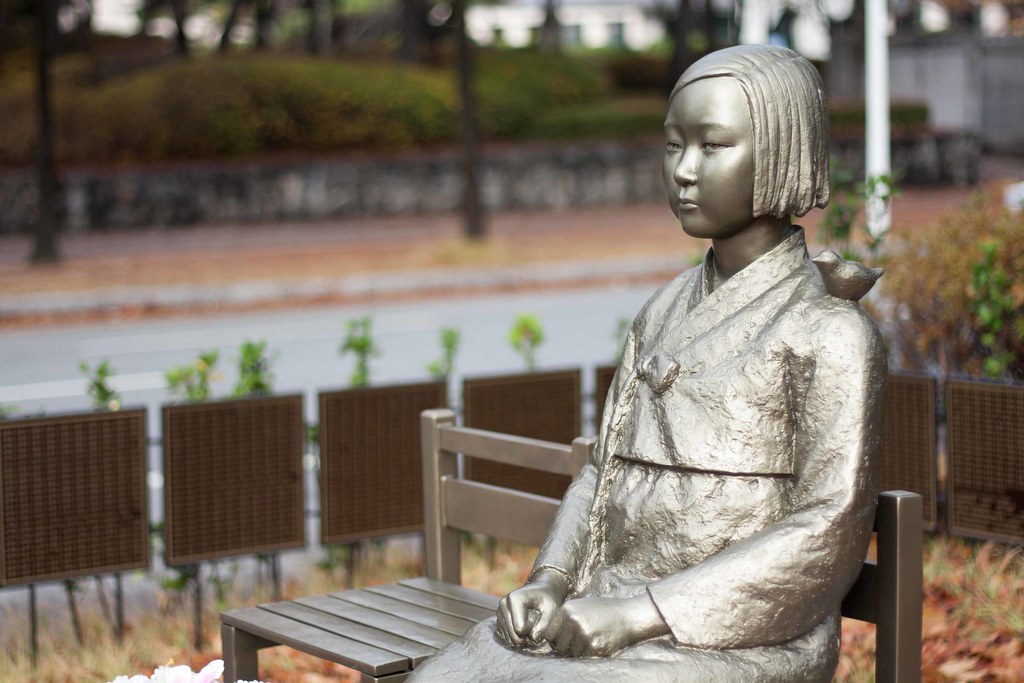 |
| Image: Flickr User - YunHo LEE |
By Yukari Easton
The resolution achieved by South Korea and Japan was a good day for diplomacy.
In a landmark agreement, seventy years after the end of the Second World War, Japan and the Republic of Korea appear to have finally resolved the longstanding issue of the “comfort women” that has hitherto plagued relations between the two nations. Japan has issued a “most sincere” apology and will pay 8.3 million U.S. dollars to the surviving victims. In return, South Korea has promised to “finally and irreversibly” end the dispute and endeavor to secure the removal of a comfort women statue in front of Japan’s Embassy in Seoul. Both nations also agreed to mutually refrain from further public criticism in terms of the issue. A symbolic telephone call made by Prime Minister Shinzo Abe to President Park Geun-hye, in which he conveyed his apologies, cemented the agreement.
The deal has been largely welcomed. Although there are opponents, notably in South Korea, including activists who support the comfort women and some comfort women themselves, who dislike the deal, the agreement met with wider acclaim in Japan. Even Tomiichi Murayama of the Socialist Party of Japan, a former prime minister and a staunch critic of Prime Minister Abe, conceded that Abe had “decided well.” In the international community, the United Nations’ Secretary General Ban Ki-moon, a former South Korean foreign minister, praised the two countries. And U.S. National Security Advisor Susan Rice hailed a “comprehensive resolution” that represented an “important gesture of healing and reconciliation.” U.S. support was soon followed by that of the United Kingdom and Germany.
In the larger scheme of things, the agreement is a win for both countries, and a personal diplomatic triumph for both Abe and Park. The comfort women issue tainted relations so severely that summit talks between the two leaders have not taken place since 2012. Sharing so much, the countries simply needed to move on. If the two countries can truly return to business as usual, the deal will confer important future security and economic benefits to both nations. To cite but one common issue, a nuclear armed North Korea potentially threatens the security of both countries who are allies of the United States. Furthermore, from a Ricardian economic standpoint, more trade means more GDP which, in turn, may ultimately even entice South Korea to join the Trans-Pacific Partnership. Economic recovery is, no doubt, a priority for Park.
Read the full story at The Diplomat

 Logging you in...
Logging you in...